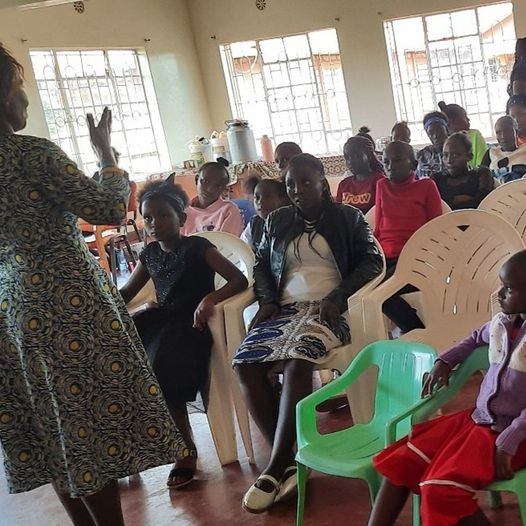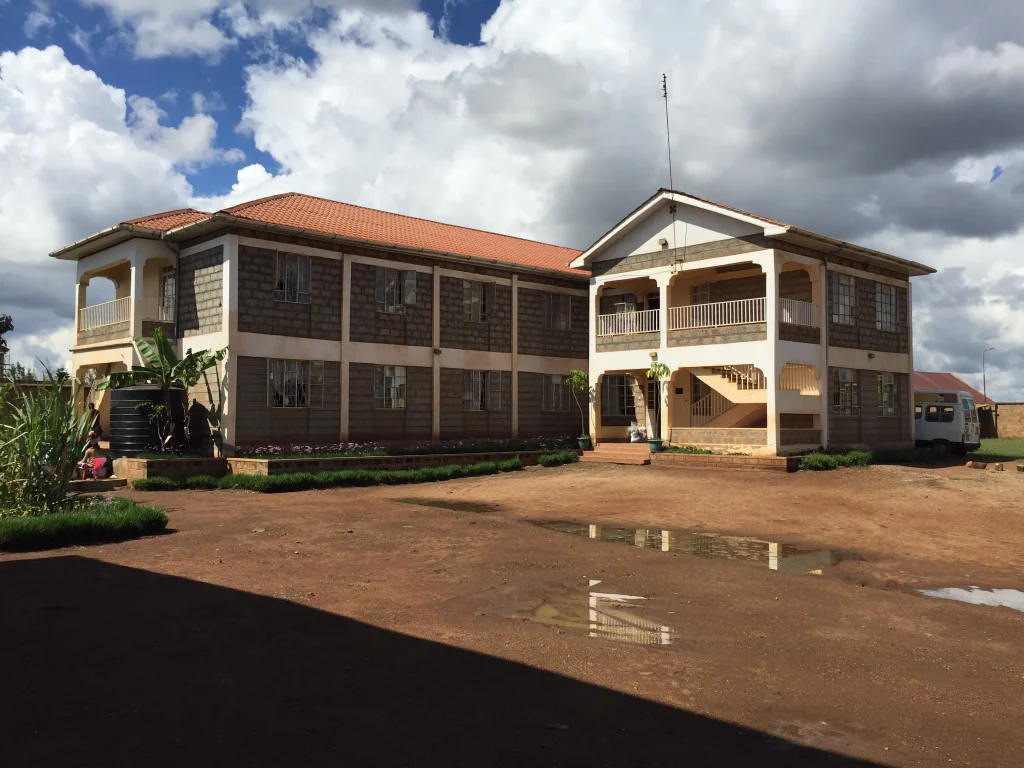KCCs Reproductive Health Programme was set up to tackle the root causes of unwanted babies and their abandonment.
Most young people in the poorer areas of Kenya receive no guidance on sexual matters or support for their adolescent concerns due to absent parents and overworked teachers. KCC aims to fill that gap. We want to help girls and boys avoid being stigmatised and rejected, discontinuing school, suffering poverty and ill health, and risking further abuse.
The first stage of the Programme, kindly funded by a grant from the Geoff Herrington Foundation, employed three counsellors to engage with children through their schools.

Our primary goal is to reduce sexual abuse of teenage girls and unwanted pregnancies and it is aimed at children aged 10-14 years. After running the initial sessions, it became clear that the girls and boys had many other emotional issues that were caused by domestic circumstances, dysfunctional family relationships, and a lack of adult guidance.
We responded by expanding the scope of group sessions to provide a range of life skills and deal with peer pressures, puberty, menstrual health, self-discipline and drug abuse.
The program includes both girls and boys and gives a rare opportunity for discussion in a child-friendly, safe environment, in both individual and group sessions.
The issues addressed include reproductive health knowledge, which includes their understanding and appreciation of their body changes, (adolescence and puberty), and menstrual health, especially with the girls going through with the demonstration of use, handling, and disposal of disposable and reusable sanitary towels.
Other topics include drug and substance abuse i.e. the cause, effects, and reasons why people get into drug and substance abuse.
Life skills are also discussed at length. These include assertiveness training, decision-making, non-chemical addiction, stress management and relationships in general.
The challenges associated with the running of the programme include:
- Limited time for the group sessions.
- Big student numbers asking for help.
- Little parental involvement.
Working closely with the schools we have been able to overcome these issues and bring tangib;e benefits to the children involved.
Whilst measuring the specific benefits of the programme is not straightforward, after two years the counsellors, children and school staff involved in the programme have reported that it has already:
- Reduced teenage pregnancy.
- Improved school attendance.
- Reduced number of school dropouts.
- Positive behaviour change.
- Improved academic performance.
We have just completed the first stage of our Reproductive Health Programme and have secured funding to continue for another two years. The funding has allowed us to double the number of counsellors that we use, meaning that the number of children helped can grow and the number of unwanted pregnancies can continue to fall.

